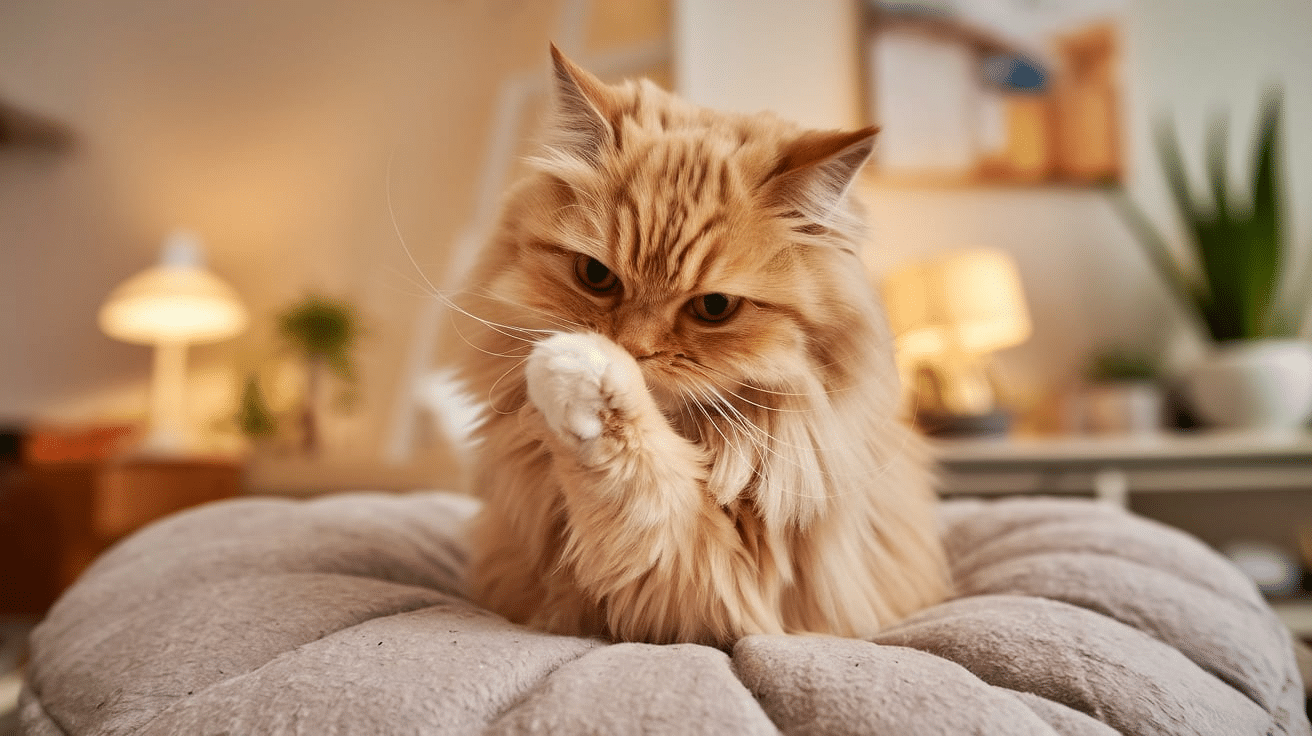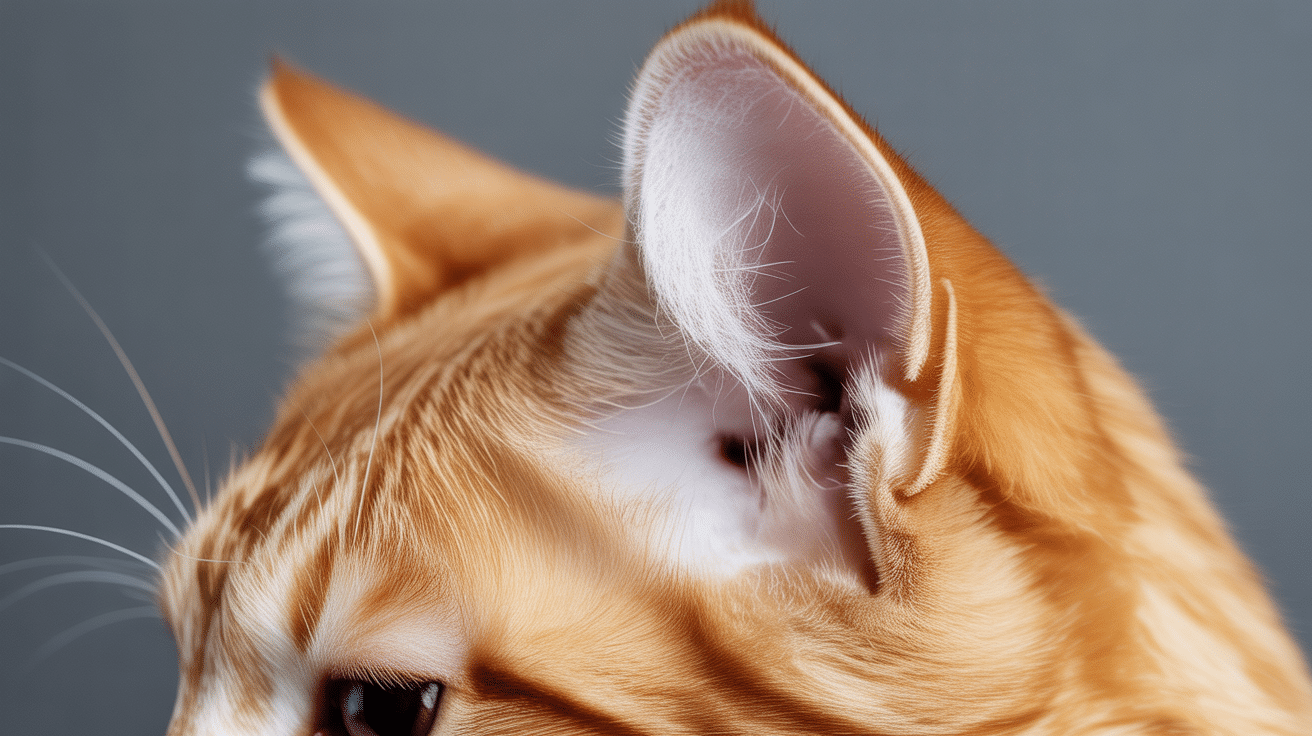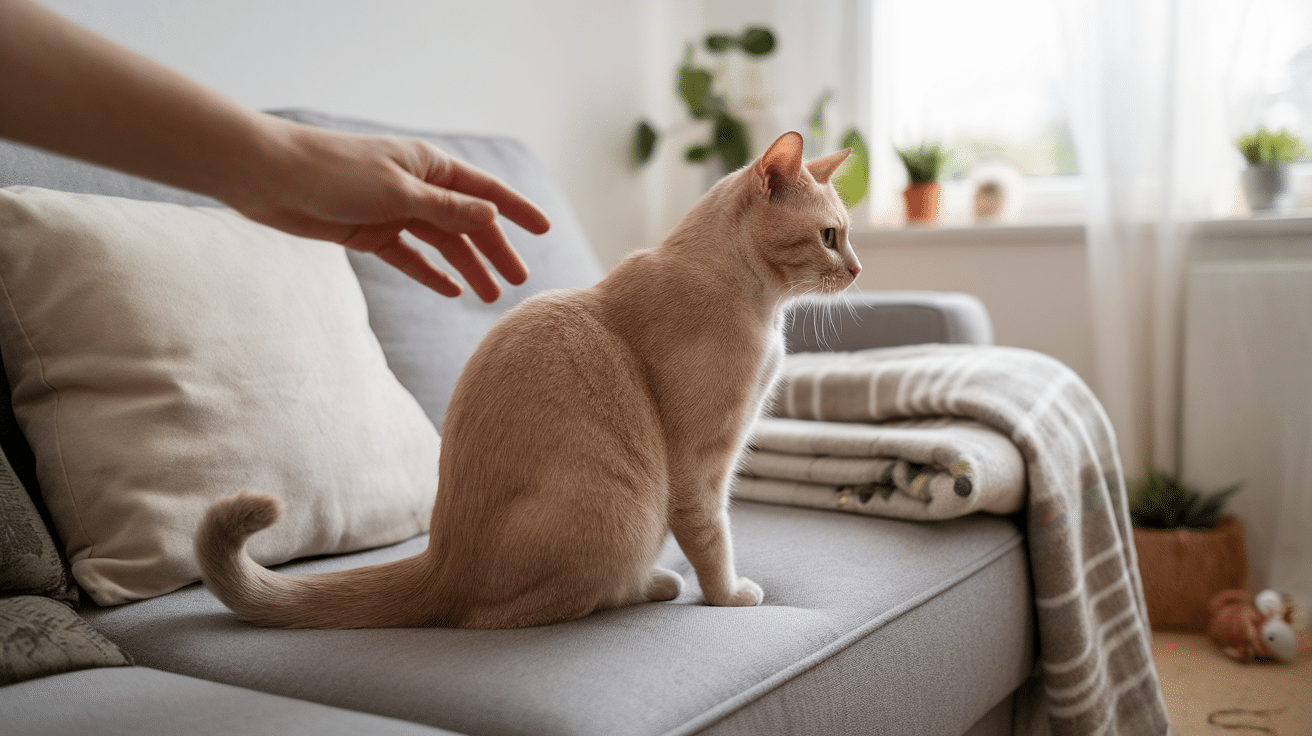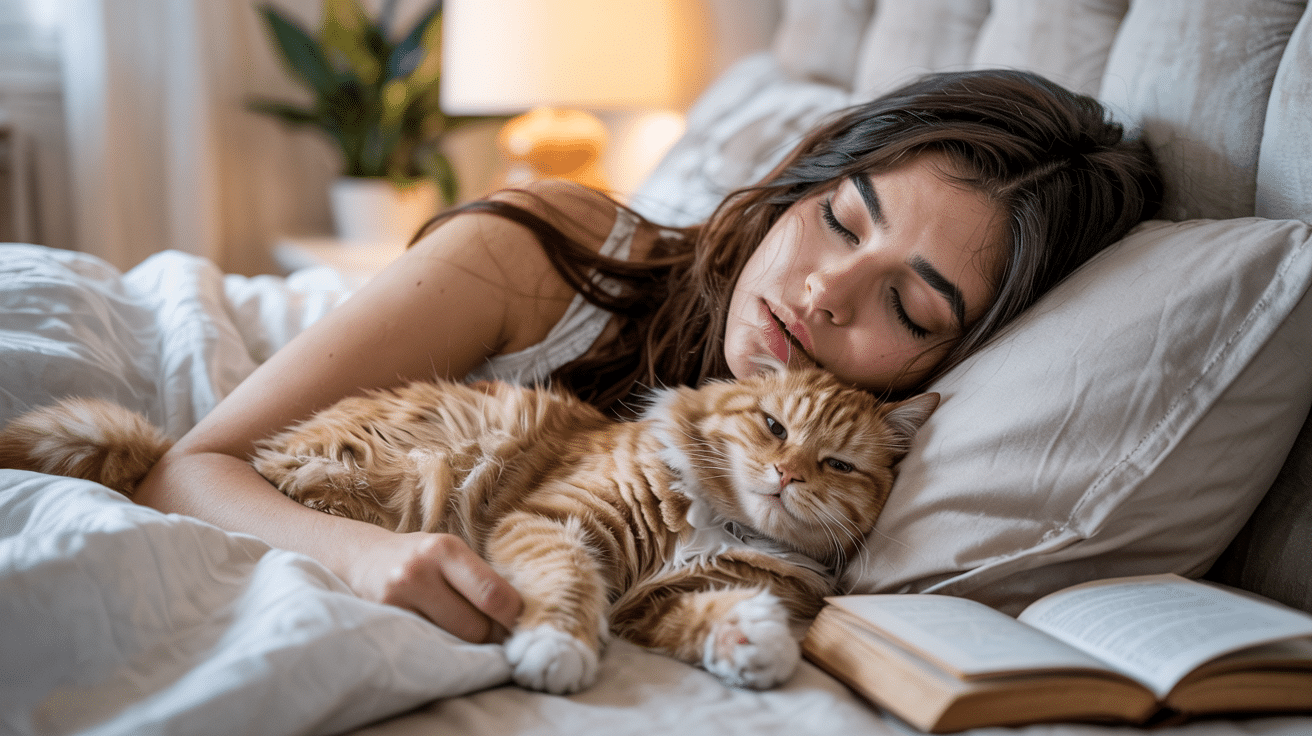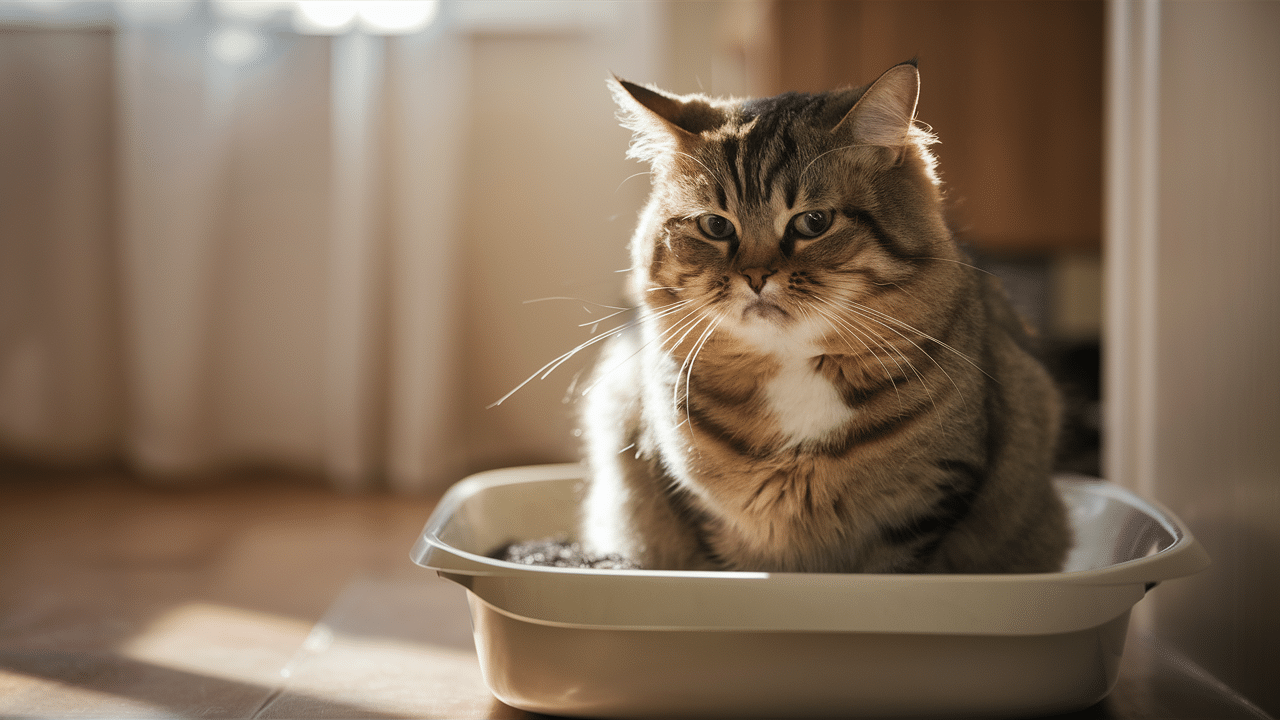Ever noticed a strange, corn chip-like smell around your cat’s paws? It’s often referred to as “Frito feet,” and while it may seem odd, it’s a common issue many cat owners encounter.
This odor is usually harmless, caused by bacteria on your cat’s paws, but sometimes it can signal a deeper problem like infection or allergies.
In this blog, we’ll learn why your cat’s paws might smell this way, how to tell if it’s a health issue, and simple steps you can take to manage the odor.
By the end, you’ll know to keep your cat’s paws fresh and healthy—because a happy cat starts with healthy paws!
Curious about what’s behind that familiar scent? Keep reading to find out.
Understanding the “Frito Feet” Phenomenon
The “Frito feet” smell in cats is primarily caused by Pseudomonas and Proteus bacteria on their paws.
These bacteria thrive in warm, moist environments, like the areas between your cat’s paw pads.
They release a distinct corn chip-like odor as they break down oils and sweat. Cats’ sweat glands in their paws can contribute to this smell.
While the sweat doesn’t have a strong odor, it can lead to a familiar scent when mixed with bacteria.
In dogs, the smell is more common and usually harmless.
However, persistent “Frito feet” in cats could indicate a problem requiring attention, such as a fungal infection or an issue with their grooming habits.
Common Causes of Frito-Smelling Paws in Cats
Natural bacteria and environmental factors often cause the “Frito feet” smell in cats.
The skin naturally hosts Pseudomonas and Proteus bacteria, which thrive in your cat’s paws’ warm, moist environment. These bacteria break down sweat and oils, resulting in a distinct odor.
Dental issues can also contribute, as bacteria from the mouth transfer to the paws during grooming. If your cat has poor oral health, this can lead to more bacteria being carried around.
Allergies and stress may prompt overgrooming, leading to sweat and bacteria buildup, intensifying the smell.
Environmental factors such as heat and moisture further promote bacterial growth, especially in humid or warm conditions.
Indoor cats may also experience this odor from walking on soft surfaces that trap moisture, while outdoor cats may encounter more bacteria or dirt.
When to Be Concerned: Warning Signs
While the “Frito feet” smell in cats is often harmless, it’s important to know when the odor signals a potential problem. Here are signs to watch for:
- Intensity of odor: If the smell becomes stronger or more persistent than usual, it may indicate an infection or other health issue.
- Excessive licking or grooming of paws: If your cat constantly licks or chews its paws, it could be a sign of discomfort or irritation.
- Visible redness or inflammation: Swollen or red paw pads suggest irritation, infection, or allergic reactions.
- Hair loss around the paws can indicate constant rubbing or scratching due to an underlying issue.
- Sores, discharge, or crusty paws are clear signs of an infection or skin condition requiring veterinary attention.
- Changes in walking or behavior: If your cat is limping, avoiding walking, or seems unusually agitated, it’s time to seek a vet’s opinion.
Diagnosis and Veterinary Assessment
If your cat’s “Frito feet” smell persists or is accompanied by other concerning symptoms, it’s time to consult your veterinarian. Early intervention can help address potential health issues before they worsen.
During the examination, the vet will thoroughly inspect your cat’s paws, looking for signs of infection, inflammation, or injury.
They may ask about your cat’s grooming habits, behavior changes, and any environmental factors that could contribute to the odor.
The vet might recommend tests such as bacterial cultures, skin scrapings, or allergy testing to identify underlying conditions.
They may also examine your cat’s teeth if dental issues are suspected. Common diagnoses include allergies, bacterial infections, fungi, or parasites.
Based on the diagnosis, proper treatment will help alleviate the issue and restore your cat’s comfort.
Prevention and Home Care Solutions
- Regular paw cleaning: Gently wipe your cat’s paws with a damp cloth to remove dirt, sweat, and bacteria, especially after outdoor trips.
- Managing environmental factors: Control humidity and keep the environment clean to reduce bacterial growth. Use a dehumidifier or air conditioner if necessary.
- Parasite prevention: Regular flea and tick treatments help prevent infestations that may cause irritation and contribute to odor.
- Stress reduction: Provide a calm environment and engage your cat with toys to reduce overgrooming caused by stress.
- Proper nail and claw maintenance: Regularly trim your cat’s nails to prevent claw-related injuries and dirt buildup.
Treatment Options for Problematic Paw Odors
1. Veterinary Treatments for Underlying Conditions
Suppose the odor is due to an infection or other health problem.
In that case, your vet may recommend treatments like antibiotics, antifungals, or other specific medications to target and resolve the underlying issue, ensuring your cat’s well-being and comfort.
2. Safe Cleaning Products and Methods
To manage paw odor safely, use cat-friendly wipes or mild soap with warm water to clean your cat’s paws gently.
Avoid harsh chemicals, as they can irritate your cat’s skin and lead to further discomfort or potential health issues.
3. Prescription Medications When Necessary
When a health condition such as allergies or a bacterial infection causes persistent odor, your vet might prescribe prescription medications like antihistamines or antibiotics to treat the condition.
These medications help restore balance and alleviate the odor-causing problem.
4. Holistic and Supportive Care Approaches
In cases of stress-induced grooming or mild infections, natural remedies like soothing aloe vera gel or essential oils can be helpful.
Always use these cautiously, as some oils can be harmful to cats. Consult your vet before use.
The Science Behind Pet Odors: Beyond the Paws
What Influences a Cat’s Scent?
Several factors can influence a cat’s scent, with humidity and heat significantly increasing bacterial growth and odor production.
The diet also directly impacts a cat’s body chemistry and, consequently, its scent. For instance, fish-based foods tend to create different odors compared to poultry or beef diets.
Additionally, genetic factors determine the composition of a cat’s skin oils, while breed differences can affect both coat type and oil production.
Furthermore, the cat’s lifestyle, whether indoor or outdoor, exposes it to varying types of environmental bacteria, further influencing its scent.
The Microbiome’s Role in Pet Health and Odor Control
The microbiome plays a crucial role in pet health and odor control, especially for cats, which host unique ecosystems of bacteria on their skin and paws.
Healthy bacterial colonies help maintain a balanced environment, preventing harmful microorganisms from flourishing. Beneficial bacteria break down oils, sweat, and skin cells in the cat’s body.
This breakdown process creates volatile organic compounds (VOCs), which are responsible for the characteristic smells we associate with pets.
However, when the microbiome is imbalanced, it can lead to stronger or unusual odors, indicating potential health issues or changes in the cat’s environment.
.Cat Odors in Different Parts and Their Causes
| Pet Body Part | Odor Cause | Details |
|---|---|---|
| Paws | Bacteria feeding on sweat from foot pads | It causes a distinct odor, commonly referred to as “Frito feet.” |
| Anal Glands | Secretions create a strong “cat smell” during stress or marking | The odor is a result of the cat’s communication or territorial behavior. |
| Facial Scent Glands | Pheromones used for communication | These scents are produced for marking territory and social interaction. |
| Fur | Environmental factors or grooming habits | Odors may arise from dirt, oil buildup, or external influences on the fur. |
Conclusion
“Frito feet” is usually harmless, but it’s important to keep an eye on your cat’s paw health. Regular cleaning and good grooming habits can help manage the odor and keep your cat comfortable.
If the smell becomes persistent or if you notice other signs like redness, swelling, or excessive licking, it could indicate an underlying issue, and a visit to the vet is recommended.
Taking simple steps to care for your cat’s paws can prevent potential problems and ensure your pet stays happy and healthy.
Looking for more pet care tips? Be sure to check out our other blogs on the website. You’ll find plenty of useful advice to keep your furry friend in top shape!
Frequently Asked Questions
Can Diet Affect Paw Odor?
A poor diet can contribute to paw odor due to imbalances in skin health and bacteria.
How is this Different From the Dog “Frito feet”?
Dog “Frito feet” is more common and generally harmless; in cats, the persistent odor may indicate an underlying issue.
